#because i have european roots
Text
learning chinese like
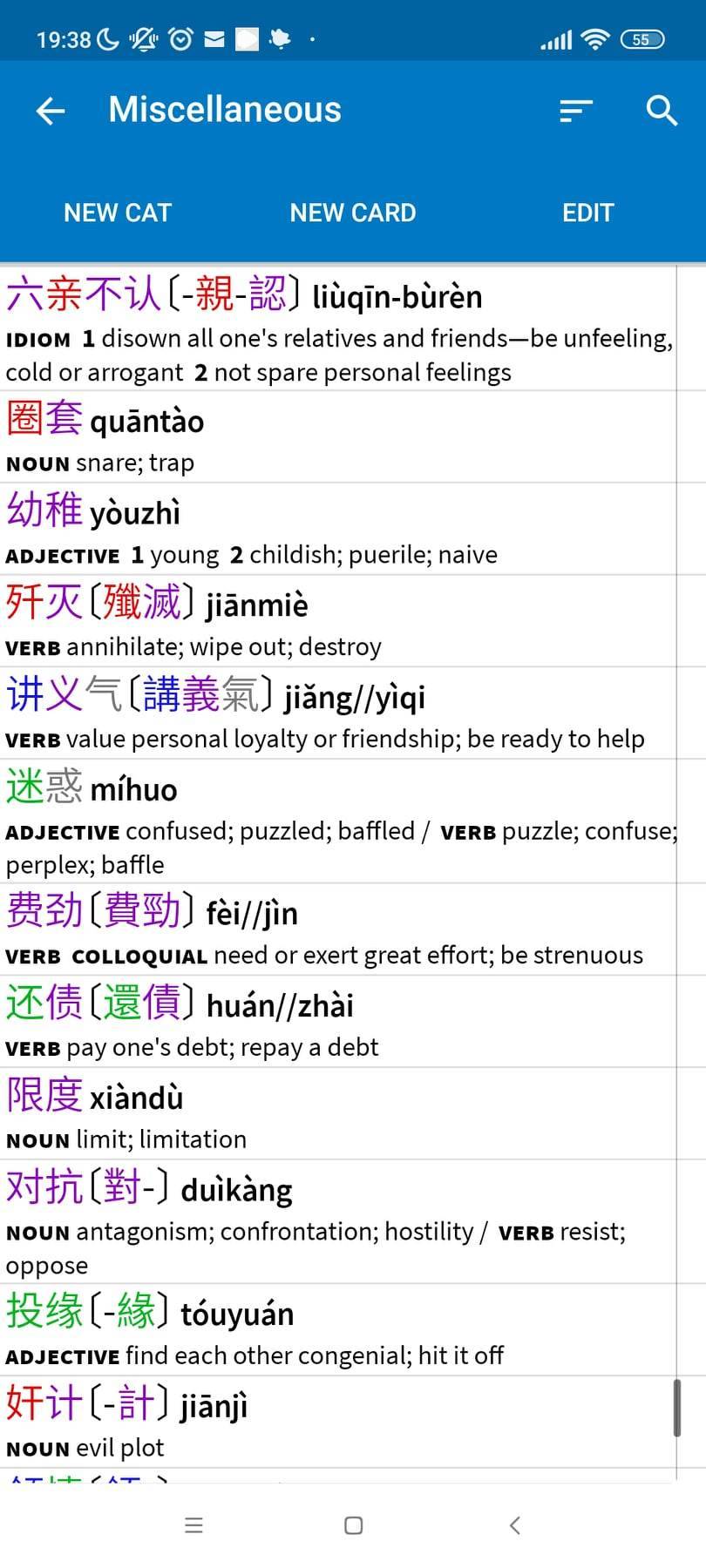
and then learning scottish gaelic like
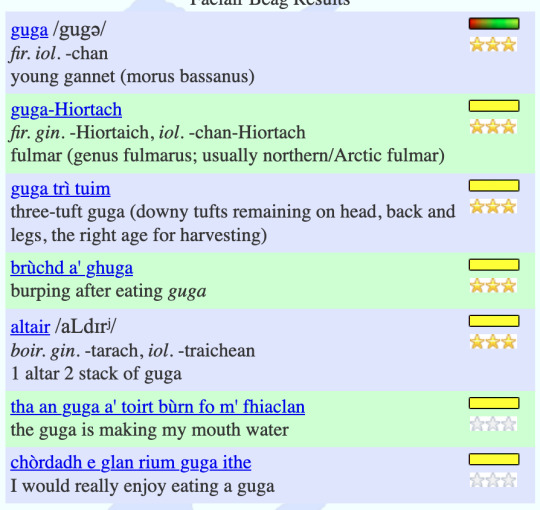
this word guga ‘young gannet’ is on lesson 3 of duolingo. if there is any better way to exemplify the difference between these languages than these two screenshots, I’ll wait
#chinese#gaelic#scottish gaelic#on a more serious note however#the deep sense of ROOTED in place that gaelic has#of knowing - yes I know what a gannet is!#I've seen them! I know where they live and nest and I know the sound of their cry!!#and knowing too all that happened to make this language nearly extinct and that it may still die yet#and still I'm here. lying on my side at 10pm in South Korea across the other side of the world#looking at a tiny electronic box and learning on an app#the word for a young wild bird#and the harsh beauty of the cliffs#I'm thinking about that post that talks about how learning a - I can't say indigenous#because it doesn't mean quite the same thing in a European context#but learning a minority local oppressed language and the way it may have of talking about the hills#and that yes English has these words too (or used to) and yes I'm maybe over-romanticising#but I still feel a deep DEEP sense of kinship to my family who also loved the cliffs and the hills like I do#and maybe talked about them like this#I don't know
49 notes
·
View notes
Text
I. HAVE. A. FRIEND.
ISN’T IT WONDERFUL?!?!?!
Yes, I know I sound like a introvert child who is sadly excluded of everything (I am/was) but this friend of mine it's like, ehmmm, my pupil. She has no clue of F1, and I am the one to have the honor to teach her and guide her through this path.
first thing I did? DTS. MAX. AIN'T. REAL. MAX.
I am not going to create another Max Verstappen hater just because of DTS to then send her to the world. there's already way too many of those. I don't want another one.
#f1#max verstappen#friends#I do know shit about southeast asian culture#but neither does she knows shit about latin american culture#and everyone knows basic stuff about italians#(yes I am going to leave my big ass italian passport and ID out of this equation) for now#I DO NOT HAVE OPPORTUNITIES LIKE THIS#we have to be im equal situations#do not blame me I just wanted to look cool and to flex with my other nationality okay?#my latam roots are as important as my european#LIKE WHEN TF CAN A GIRL FLEX HER SECOND NATIONALITY?#because people sometimes care more about the european stuff than they do about my beautiful Central America
4 notes
·
View notes
Text
seeing people from other latam countries against argentina right now while something i don’t understand (unless you’re brazilian) is something i can respect. but seeing europeans against argentina right now? i’m seeing red
#i don’t mean people who are just rooting for the dutch because they’re dutch or their neighbors#i mean people who are just ‘tired of argentina’ like okay. why do you have such a problem with latin america 🤨#literally every team left is european except morocco and argentina hasn’t won in yearssssss#and these are the same people calling croatia the underdog?? i like the croatian team but they literally were the runner up 💀#world cup#a.txt
16 notes
·
View notes
Note
Its also infuriating that he waved Ukraine’s flag but not Palestine and I’m not saying he shouldn’t have picked up Ukraine’s, just his double standards smh.
it's selective solidarity! he only does it when it benefits him
#i dont give a rat's ass about bella hadid but she's spoken very candidly about how many brands and companies pulled away from her#because she refused to not stand with palestine and do so publicly#we heard years ago that there's a negative pr campaign against zayn and part of the reason was his support for palestine#mister harry styles could never have the balls to do something that MIGHT hurt his career#i say might bc he is a white european man. zayn is a brown muslim & bella has palestinian roots#there is a world of difference between them but anyway you get my point#anonymous#answered
17 notes
·
View notes
Note
just stumbled on a woman of clear african descent telling m*appe on his last post to 'keep his head up" and talking about the "clear" difference in "education and class" between france and south america and it's just so tiring cause like??? i don't want to generalize but that honestly seems to be the case most of the time. if you needed anymore proof that europeans, whether they're even a little bit ethnically european or are just born there, tend to think they're just plain better than south americans... now i don't know if this woman has a french parent or was simply born there but there is NO WAY she just called a whole country she clearly knows nothing about uneducated and classless like,,, lady,,, what do you think a lot of white french (and just european honestly) have to say about you??? get a grip honestly 😭😭😭
oh god......
yeah idk what to say. I have no problem with people feeling more connected to the western country that they were born in than their native country but making ignorant comments like that is just insane and honestly kinda pathetic.
It only gives white people a pass to be even more racist towards African/Asian/Central and South American countries when racialized people make comments like that. Like that African-French woman could be subjected to those same comments from a White French person.
#like its this weird hierarchy of nationalities and ppl forget how to act just because they were born in Europe/North America#i find that it is typically WORST for racialized Europeans like they really do forget their roots omg...#and they be lying and stuff just to try and integrate its crazy#i have cousins in the UK and the Netherlands and the lifestyle is SO different#like they really forget that they're Black because they're so eager to fit in with the white folk
6 notes
·
View notes
Note
I'm partially happy, I love that Morocco winned (fuck of CR) but I'm not happy that France has won, however was a hard choice between the two playing. Can I dream with a final between Morocco and Argentina? The only two outside Europe, a girl can dream
i don't want Argentina at the finalsjfkfj so I'm hoping for Croatia x Morocco
#i have my set enemies you see and Argentina is one of them#so i need them out#but before the finals#I'll be rooting for Morocco from now on because they deserve to win this one#they've been giving it all and playing so well#and they're not European so that's a win win
4 notes
·
View notes
Text
What I was taught growing up: Wild edible plants and animals were just so naturally abundant that the indigenous people of my area, namely western Washington state, didn't have to develop agriculture and could just easily forage/hunt for all their needs.
The first pebble in what would become a landslide: Native peoples practiced intentional fire, which kept the trees from growing over the camas praire.
The next: PNW native peoples intentionally planted and cultivated forest gardens, and we can still see the increase in biodiversity where these gardens were today.
The next: We have an oak prairie savanna ecosystem that was intentionally maintained via intentional fire (which they were banned from doing for like, 100 years and we're just now starting to do again), and this ecosystem is disappearing as Douglas firs spread, invasive species take over, and land is turned into European-style agricultural systems.
The Land Slide: Actually, the native peoples had a complex agricultural and food processing system that allowed them to meet all their needs throughout the year, including storing food for the long, wet, dark winter. They collected a wide variety of plant foods (along with the salmon, deer, and other animals they hunted), from seaweeds to roots to berries, and they also managed these food systems via not only burning, but pruning, weeding, planting, digging/tilling, selectively harvesting root crops so that smaller ones were left behind to grow and the biggest were left to reseed, and careful harvesting at particular times for each species that both ensured their perennial (!) crops would continue thriving and that harvest occurred at the best time for the best quality food. American settlers were willfully ignorant of the complex agricultural system, because being thus allowed them to claim the land wasn't being used. Native peoples were actively managing the ecosystem to produce their food, in a sustainable manner that increased biodiversity, thus benefiting not only themselves but other species as well.
So that's cool. If you want to read more, I suggest "Ancient Pathways, Ancestral Knowledge: Ethnobotany and Ecological Wisdom of Indigenous Peoples of Northwestern North America" by Nancy J. Turner
31K notes
·
View notes
Text
i think most of the white ppl feeling like they have no culture stuff stems from a lack of connection to their communites. if you go nowhere and talk to no one then yea youre not really participating in the culture of your area. eat produce grown by ppl in your area go to county fairs check out the annual things in your area, thats your culture. like to give an overly simple answer if you live in america then americana is pretty likely to be part of your culture
#put some blue jeans an cowboy boots on if you need a cultural garment#or logger boots/ work boots if those are more historically or familially relevant to you#honestly if you just talk to your living relatives enough you can learn about possible fibercraft your great-whatevers did#i learned recently that a lot of my family lived in tenessee for a few centuries#but my dad is a carpenter and i live in the pnw#my town had some historic logging activity#and is known for its raspberry production#currently we have a lot of local dairy and beef#the grocery store sells cheese and milk from the next town over#this is part of my culture#i do think Americans' affinity for moving across the country from where they were born makes the cultural alienation worse too#but you just gotta learn the cultual details of wherever you end up putting down roots#at the same time#i don't think its very harmful to learn more about older traditions your european relatives had as long as youre not being fascy about it#ppl say its diff with black people learning about african cultures because of the violent supression of slaves' cultures#but like you still get fascy hoteps and shit#and historically there was (much less violent) suppression of non brit protestant european cultures in the US#so like#none of us got to choose how much culture got passed onto us from our relatives#obviously dont start spouting ethno-nationalist bullshit and speaking with an accent based on your ancestry results#but i think its ok for people to adopt practical cultural elements into their daily lives#like cooking cultural foods or learning about the history of that culture#its not like americana hasnt ever been used for fascist ends
0 notes
Note
The "potion-crafter" archetype of alchemist used in fantasy is often, like, an independent chemist that works off commission or sales to create fireball elixirs or exorcism salves. Is there a grain of truth, there? Did alchemists in any period you studied make a living by synthesizing magical items (like panaceas or DIY-chrysopoeia-kits or somesuch) and selling them on to any willing customer, or was that not really in their domain?
Ha! You know sometimes it can be a bit annoying answering asks like this, because most fantasy media isn t terribly interested in authentically representing history, BUT THIS TIME I can give y'all a specific and direct answer!
The archetype of the potion-crafter you're talking about almost definitely has its roots in an actual pre-paracelcian european medical profession; the Apothecary.
There were three types of doctors in the 1500s. There were diagnosticians, the people who went to school to learn about anatomy, and were allowed to call themselves "doctor." There were surgeons, the low-skilled workers who were in charge of hacking off limbs and draining bedpans. And there were apothecaries, basically the medieval equivalent of a pharmacist.
If you were a wealthy merchant, and you went to a doctor for your runny nose, he would look you over, and give you a prescription that you were supposed to take down to your local apothecary, so you could buy a potion from them.
But these prescriptions weren't exactly strict. A doctor might prescribe you an exact list of ingredients with the amounts, or he might just prescribe you "a healing ungent of cooling and drying herbs." So the apothecaries occasionally had some wiggle room based on supplies and expertise.
The important thing to remember, is that apothecaries were NOT considered magicians or alchemists.
That is, until Paracelsus came along.
See, good ol' Paracelsus was a radical innovator. He was one of the first physicians in history to be all three types of doctor at once. He was a diagnostician, a surgeon, and an apothecary. He argued that all doctors should have knowledge of their entire profession, and that no doctor was above suturing their patients wounds, and mixing their patients medicines.
He was also, crucially, an alchemist and a magician.
Alchemy was the cutting edge of technology for the time, a practice regarded with equal parts awe and suspicion, but it was more the realm of glassblowers and metallurgists than doctors or botanists. Paracelsus disagreed. He argued that if it's part of God's creation, it should be used to heal the human body.
This extended to magic. Paracelsus figured that you had to factor in things like "the movement of the planets and their influence on the earth." And he was known for prescribing patients things like "astral talismans to be worn about the neck." A practice that, even for his time, was often seen as backwards and superstitious. (Although given how harmful medieval medicine was, the astral talismans might have been your best option sometimes.)
Paracelsus was a radical. People fucking hated him, especially when he was alive. But his ideas were extremely influential, and exploded in popularity after his death in 1541. I can confidently say that the fantasy archetype of the Potion Brewer is based on Paracelcian physicians, the doctor/alchemist/apothecary/magicians who followed his theories.
Here I'll link my Patreon if y'all wanna support my research! I have a whole section on Paracelsus.
5K notes
·
View notes
Text
A continuation on my post about unloved foods, specifically this is my in-depth defense of root beer.
Root Beer isn't inherently gross, it's just one of those weird local flavors that's off-putting to people who didn't grow up with it. We all like different things and also we all tend to like flavors that are similar to what we grew up with. That's okay! But honestly root beer is pretty unique and, in my opinion, delicious.
One of the main complaints against root beer is that it tastes like medicine. Funnily enough, it was originally marketed as medicinal! This is true for most OG sodas actually. Pretty much as soon as carbonated water was invented, people were drinking it to soothe various ailments. A lot of the original soft drinks were actually invented by pharmacists. I just think that root beer is especially cool because the main flavor came from the root bark of sassafras, a common North American shrub. Because it's so widespread and aromatic, all parts of the sassafras plant have been used in food and medicine by many different Native American tribes throughout history and was subsequently picked up and used by European colonists. In the 1960s, some studies indicated that that safrole oil, which is produced by the plant, can cause liver damage. Whether or not this would actually remain true after it had been boiled and added to root beer is unclear, but it was really easy to replicate the flavor, so the sassafras in commercial root beer these days is artificial. Another fun fact about safrole is that it's a precursor in the synthesis of MDMA. None of this information has stopped my childhood habit of eating sassfras leaves right off the shrub whenever I walk past it on a hike. I'm like 85% sure it's safe and also mmmm yummy leafs go crunch.
Another root beer complaint is that it tastes like toothpaste. I think this is probably because another key flavor in most root beer recipes is wintergreen. I'm assuming that the people who think this are the same people who think mint chocolate chip ice cream tastes like toothpaste. I can understand and even respect that some people don't like mint and associate it only with brushing their teeth, but like. Mint is a pretty common flavor. I mean I think it's safe to say that humans have been eating mint flavored stuff for longer than toothpaste has existed... anyway!
Other common flavors in root beer (real or artificial) are caramel, vanilla, black cherry bark, sarsaparilla root, ginger, and many more! There's not one official recipe, and root beer enthusiasts often have strong opinions about different brands. Some root beer is sharper, with more strong aromatic flavors, and others are mild and creamier.
Another thing I think is cool about root beer is that it's foamier than most sodas. This was originally because sassafras is a natural surfactant (and why sassafras is also a common thickening agent in Louisiana Creole cooking.) These days, other plant starches or similar ingredients are added to keep the distinctive foam. Root beer foam > all other soft drink foams. That's why root beer floats kick more ass than like, coke floats.
If you've never had root beer before, imagine if a sweetened herbal tea was turned into a soda, because that's basically what it is. If your first response to that is a cringe, fair enough. That's why lots of people don't like it. If your first response to that is "interesting... I might actually like it, though" then I encourage you to track down a can of root beer today, hard as that might be outside the US and Canada. Next time you see an "ew, root beer tastes like medicine/tooth paste" take, know that there's a reason for that, but also the same could be said for literally any herbal or minty food/drink.
My final take on root beer is that it would be the soda of choice for gnomes. Thank you and good night.
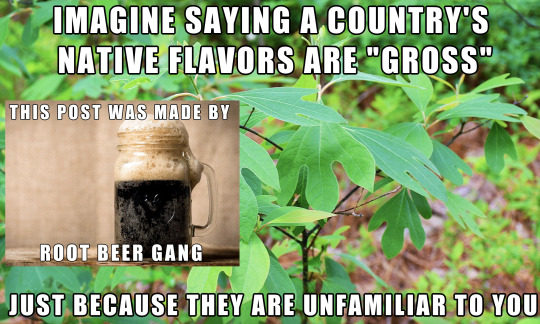
13K notes
·
View notes
Text
I randomly found a 500 page French book on OpenLibrary about the etymology of animal names so here are 10 (ish) fun facts:
the French word for poodle, “caniche” looks like it definitely comes from Latin “canis” (dog) but no! It comes from cane / canard (duck) because it was a waterfowl-hunting dog—and its name in English, Swedish, German, Dutch (poodle, pudel, puedel) also reflects this dog’s affinity with water (from pudeln = to splash about). It’s like otters, whose name come from the same root as water...
the canary on the other hand is named after canis / dog, since it comes from the Canary Islands which, according to Pliny the Elder, were named after the huge dogs that lived there at some point. Some historians think these mysterious big dogs were actually seals or big lizards. Then a bird ended up with the name ‘from the dog place’ though it’s unclear if dogs were ever truly involved. (Meanwhile Spain / Hispania comes from the Phoenician i-shepan-im, the place with rabbits.) I like the idea of ancient humans seeing seals or lizards and going “weird dogs”. Like how ancient Greeks saw hyenas and named them “pigs, I guess?”
the fox has a great diversity of names in Europe: fox / Fuchs, zorro, räv, volpe, raposa, lisu, róka, renard... In French it used to be called ‘goupil’, from the same Latin root as the Italian ‘volpe’, but then the mediaeval cycle of poems known as Le Roman de Renart, about an unprincipled fox named Renart, became so popular that renard became the word for fox and goupil disappeared. It’s like if 500 years from now bears in English were called baloos. (The English and German words for fox come from the indo-european root puk- which means tail, like Hungarian ‘farkas’ (wolf) which means tail-having, or squirrel, from the Greek words for shade + tail, there are actually lots of animals that are just “that one with a tail”...)
French has a word for baby rabbit (lapereau) derived from Latin leporellus (little hare) and we used to have a word for adult rabbit (conin) from Latin cuniculus (rabbit)—related to the German Kaninchen, Italian coniglio, Spanish conejo, etc. But ‘conin’ in Old French also meant pussy (there were mediaeval puns about this in the Roman de Renart) and at some point I guess people were like okay, it was funny at first but we’ve run this joke into the ground, and a new and politically correct word appeared for adult rabbit (lapin) based on the pre-existing word for baby rabbit (lapereau).
The english bear is thought to come from the proto-IE root bher-, for brown—I love how Finnish has so many nicknames and euphemisms for “bear” ranging from “honey palm” to “apple of the forest” and English is like... dude’s brown. Same amount of effort with the Swedish and Danish words for fox, räv / ræv, from a root that means reddish-brown. (And the Hungarian word for lion, oroszlán, along with the Turkish ‘aslan’, comes from proto-Turkic arislan / arsilan which comes from arsil which means brown...) And since brown was already taken, ‘beaver’ (+ German, Dutch, Swedish...: Biber, bever, bäver) has been speculated to come from bhe-bhrus-, a doubling of the original root so... brownbrown.
English foal / German Fohlen / French poulain / Italian puledro all come from the proto-IE root pu- which means small (e.g. Latin puer and Greek pais = child)—then the French ‘poulain’ became ‘poulenet’ with the diminutive -et (so, a smallsmall animal) and poulenet became powny in Scots then pony in English, which was then re-imported by French as ‘poney’. Also the Spanish word for donkey, burro, comes from Latin burricus = small horse, and in French Eeyore is named Bourriquet with the -et diminutive ending, so we just keep taking small horses and turning them into smallsmall horses...
The boa (bo(v)a) shares the same etymology as bovine / bœuf / beef, due to a widespread belief that some snakes suckled milk from cows. Pliny the Elder stated this as fact and (not to bully him but) modern research tells us “there is no empirical basis for saying snakes like mammal milk; experiments, indeed, have shown that captive snakes systematically refuse to drink milk”
I was disappointed to learn that antelope comes from Greek anthólops which referred to a mythical creature, because I grew up convinced the origin of the word (antilope in French) was anti-lupus, as in, the gazelle is the generic prey so as a concept it’s the opposite of the wolf, the generic predator. Wolf and anti-wolf. Though it raised the question of why we don’t have antilions (zebra), anticats (mice) and antibears (salmons)
Many European languages have named kites after some sort of flying animal: in English it comes from the word for owl, in Portuguese from the word for parrot, in Italian from eagle, and in French it’s cerf-volant aka flying-deer. There’s an interesting hypothesis for this! Kites came to Europe from China, where they were often shaped like dragons or snakes, and snake is serpent in French and serpe in Old French, so it’s possible that kites were serpe-volants aka flying-snakes. But the ‘p’ and ‘v’ next to one another were a hassle to pronounce so the p got dropped and it became ser-volant, then ‘ser’ which isn’t a word started being mistaken for ‘cerf’ which is pronounced ‘ser’ but means deer...
(We did it again with chauve-souris (bald-mouse = bat), which comes from the Gaulish cawa-sorix aka owl-mouse—which makes more sense as a name for bats! similar to the German Fledermaus, flying-mouse, and Spanish murciélago, blind-mouse. But Gaulish ‘cawa’ was mixed up with Latin ‘calva’ = chauve = bald, so now a French bat is a bald-mouse)
I love etymology, it’s all flying deer and dogs named splash and snakes named cow and ponies named smallsmall and five animals named brown and three named tail—words acquire a veneer of linguistic respectability over the centuries and we forget that fundamentally everyone just says whatever
2K notes
·
View notes
Text
.
#Mel rambles#in the tags because I feel like I posted too much already#so OC mood is settling for tragic (but with possible happy ending) with the tragedy deeply linked with the OCs relationship#either the tragedy affects their relationship or it is directly rooted in the relationship#it would fit Noyo and Lizius BUT they are in a romance european fantasy setting and I want something more shonen#what is something more shonen? not sure. modern works. ancient asia works too.#medieval european works but not for lord and guard more with a school or something similar#it's not about logic or genres we're with vibes only right now#so uuuh. I still have no idea where I'm going actually#fuck.
0 notes
Text
so many of us haven't seen it
we don't encounter it, we can't imagine it, we can't get out of the tomb of apathy because we haven't seen the wonders just beyond their line of sight
I talk about this all the time, but it's because I think about it all the time
There are likely thousands of plants native to the area you live in, and chances are you have never even seen most of them, in your entire life.
Not even rare orchids that only bloom at midnight on a blood moon or some shit—regular flowers. Weeds. They have been systematically eliminated from every single place you ever set foot in, and you have to have a special hobby or line of work to ever even rest your eyes upon the flowers that used to bloom for no one on every hill, or in every valley, or beside every stream
There are a few hundred birds that live where I live. I have never seen most of them before. I have never seen a Kentucky Warbler, and I have lived in Kentucky for what...twenty years?
I have never seen a rosy maple moth. When I saw one on the internet, I didn't even think it was real.
I've become a deeply weird person over the past couple years. Tasting even a little bit of the Wonders changes you. I wouldn't have thought blue bees were real, or the fantastically rainbow-colored dogbane beetles.
I have seen the world beyond the wasteland, and that glimpse makes you crazy.
You or I may have never seen a truly mature tree. A fraction of a percent of the old growth forest of the Eastern USA remains. Once there were tulip poplars over 6 feet in diameter and sycamores well over 10 feet in diameter. Only a few remain, in secret locations. Imagine walking through a forest where the tree trunks are over 3-4 feet wide.
The forest where I work is 100 years old. That's a baby forest.
Knowing that, being aware of that, it's maddening.
Central Kentucky has disproportionately few endemic plants. Almost none. Central Kentucky was the first area west of the Appalachians settled by European colonizers. The Bluegrass was once described as having the most peculiar plant life anywhere in the East, but now, there are no species known that are unique to that area.
Colonization destroyed the canebrakes. (Did you know that we had vast forests of bamboo full of carnivorous plants?) The bamboo is barely hanging on. It destroyed the sycamores so enormous you could use the hollow center of one as a stable for animals. It introduced invasive grasses to feed cattle and horses. It destroyed the rich lush topsoil. Most of the ancient oaks were cut down or died when housing developments were built on top of their roots.
What happened to the endemic species, never recorded in books of herbs, never sketched by a European naturalist.
Either gone forever...or hiding in a sinkhole on a backroad somewhere, not even yet discovered.
So much has been lost for eternity. So much still could be lost.
Some days it's hard not to wail and scream. There are herbicides in your drinking water. When you spread honey on toast, you likely also spread neonicotinoid pesticides, which testing has confirmed to be present in something like 45% of honey. In many areas, insects are immersed in the presence of chemicals designed to kill them in every drop of water, every leaf, every square inch of soil.
When games, animations, and illustrations envision the outdoors, they cover the ground with a short, uniform carpet of green, because that is what we see, no matter where we go: turfgrass cut by a lawn mower. Where I live, there are no natural environments that resemble this, remotely. The closest thing we have to turf-forming grass is our wealth of native sedges, most of which are rare or endangered.
I talked to a man who had devoted his life to studying the American bamboo, Arundinaria gigantea, and he had never seen a canebrake larger than 200x500 feet. Canebrakes once covered ten million acres, and now the bamboo exists in short, straggly clumps instead of dense bamboo forests up to 40 feet tall.
I want to cry and scream. The grief will tear me to pieces. I live in a post-apocalyptic wasteland, surrounded by people who can't even grieve, because they have been so completely severed from everything that was lost that they don't even know it was real.
It hurts. It hurts, and we have to live with it. It hurts, and the grief is all-consuming.
There is the agony, and there are the Wonders. Both are true at the same time. It is because nothing around us is standing still; everything in nature is always moving, iterating, becoming. Something is pulling and nudging at our species, urging us to move, to iterate, to become.
So much has been lost. Even more is not lost.
The trees, the bamboo, the sedges, the Kentucky warblers and rosy maple moths.
They are not lost. We are lost.
This is the hard part. The grief is hard, but this is somehow harder for us. We are lost, and it is time to come home.
Not to a physical place, but to a way of living: interconnected, mutualistic, interdependent. Symbiosis. In the forest, no one is separate from anyone else, everyone is linked and dependent on the community. Trees help each other, they support each other, they protect and shelter and feed one another and all living things, and together they are a forest. I don't really consider myself religious, but I have to reserve something in my head for how it felt to realize what Forest was.
When I noticed the little plants popping up in the sidewalk cracks and gravel paths, the tough weeds holding on in the lawns and pavement, something in my brain began to change dramatically and permanently.
They're still here. The trees. Even in the pavement and lawns. The dandelions have come, adapting rapidly, helping the bees hold on. The wildflower seeds are still sprouting in this depleted ground. Waiting for us to recognize them. Life is everywhere. The Forest is everywhere. It felt like they were waiting. We're here. We have not abandoned you. We are resilience, persistence, survival, adaptation. This is not death. This is Chaos. Come home. Come home. Come home.
I saved little plants from the roadside and tended them in plastic cups. I didn't think it would work. I don't know why I tried. I was acting as something bigger than only myself, responding to a call that moves throughout all of nature. But they survived, and growing and tending to my little plants and trees, I—understood.
I don't know if I believe in God, but I believe in Something, whatever it was that seemed to whisper like a secret: Welcome home, Caretaker.
And honestly, truth shone through then from relics of religion I hadn't touched in ages; God put Adam in a garden, not a suburb, a mall, or a Walmart. This is who you are. Not a Consumer, but a Caretaker.
And when the threat of the Flood loomed, God told Noah to start building a fucking boat.
In ecology, the plants we know as "weeds" are pioneer species: the first species to return to an area after a natural disaster or mass extinction. They survive in the harshest conditions, and prepare the land for regeneration. This is who you must become.
Look to the Dandelion—in just a few hundred years on this continent, Dandelion has risen to the highest calling of a Weed: first survive where the others can't, and then help the others survive. If the human species is to survive, you must be a weed species. You must adapt relentlessly, resist eradication, and protect and nurture other life forms by your very nature. You must be tough as nails, and make the world a gentler place through your survival.
Have you heard the saying that grief is love with no place to go?
That's the hard part.
We must grieve, but it is not yet time to grieve. It is time to love.
2K notes
·
View notes
Text
The puns are coming for you: Shax can absolutely spell toast.
After falling down a Middle English rabbit hole the other day, I came upon another fun spelling mistake that gets played for modern day laughs.

Shax loves insulting Crowley and Aziraphale. It’s one of her favourite hobbies! Except this time she says “they’ll be T O S T...E!” Which is great fun because, you know, demons can’t spell. Right? Of course not.
Behold: the Middle English spelling of toast
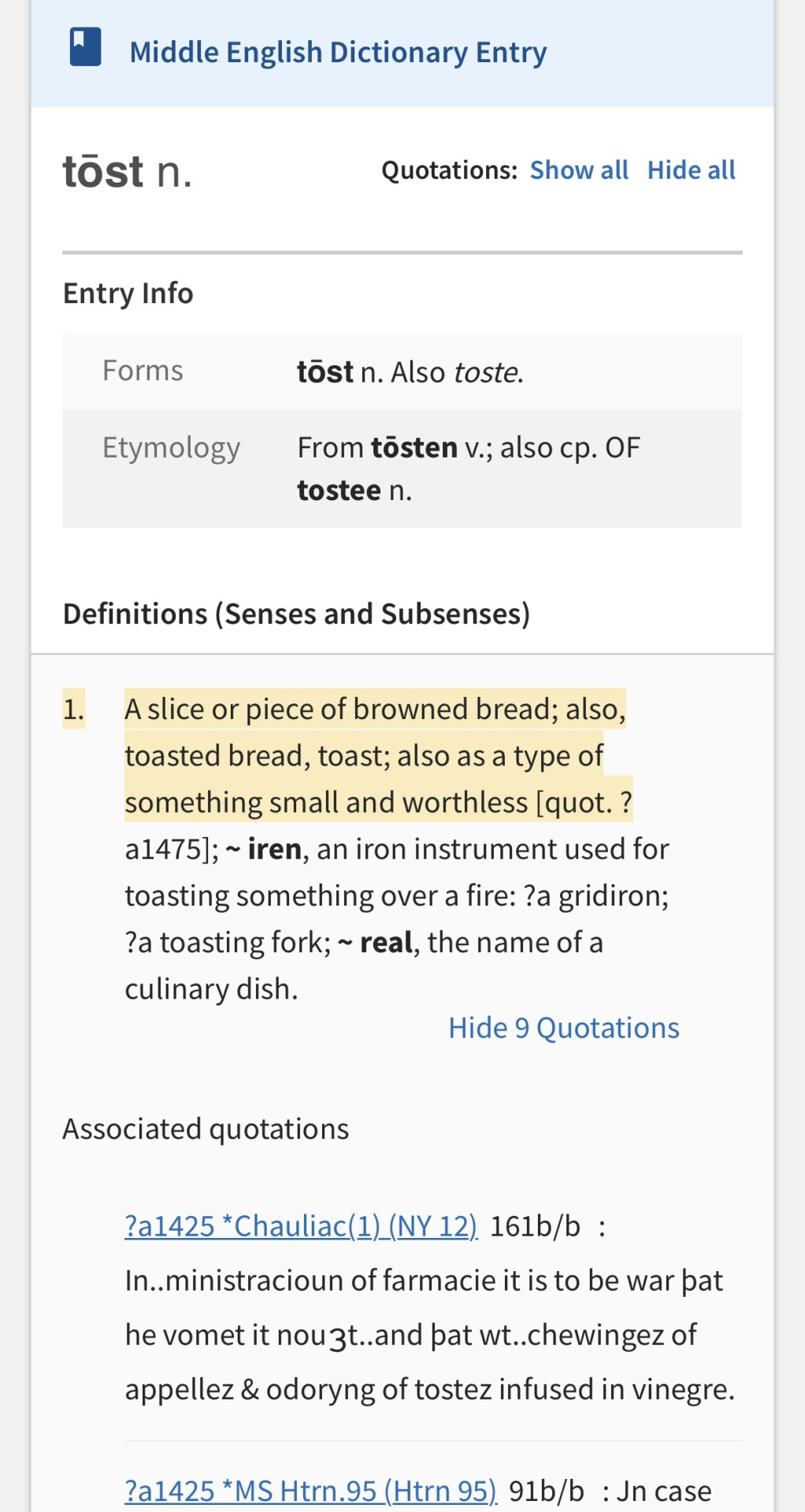
If you know anything about Middle English you know spelling is kind of a hot mess. Often words can be written multiple ways, because before the printing press, uniformity in words just wasn’t that common. Toast had two spellings : tost and toste. Which is why she hesitates on the -e.
It’s actually a double burn, seeing as in most Latin derived languages, toste seems to have meant “toasted” or “rapidly/quickly” but in English for some reason, the other meaning is derogatory. It’s “small and worthless”. Like a toast crumb.
And there’s always more : it’s another word derived from our friend, Old French! Which actually inherited the word from the Latin root Tostus, as with most other European languages that still use it. However, have a look at the Latin for a second.
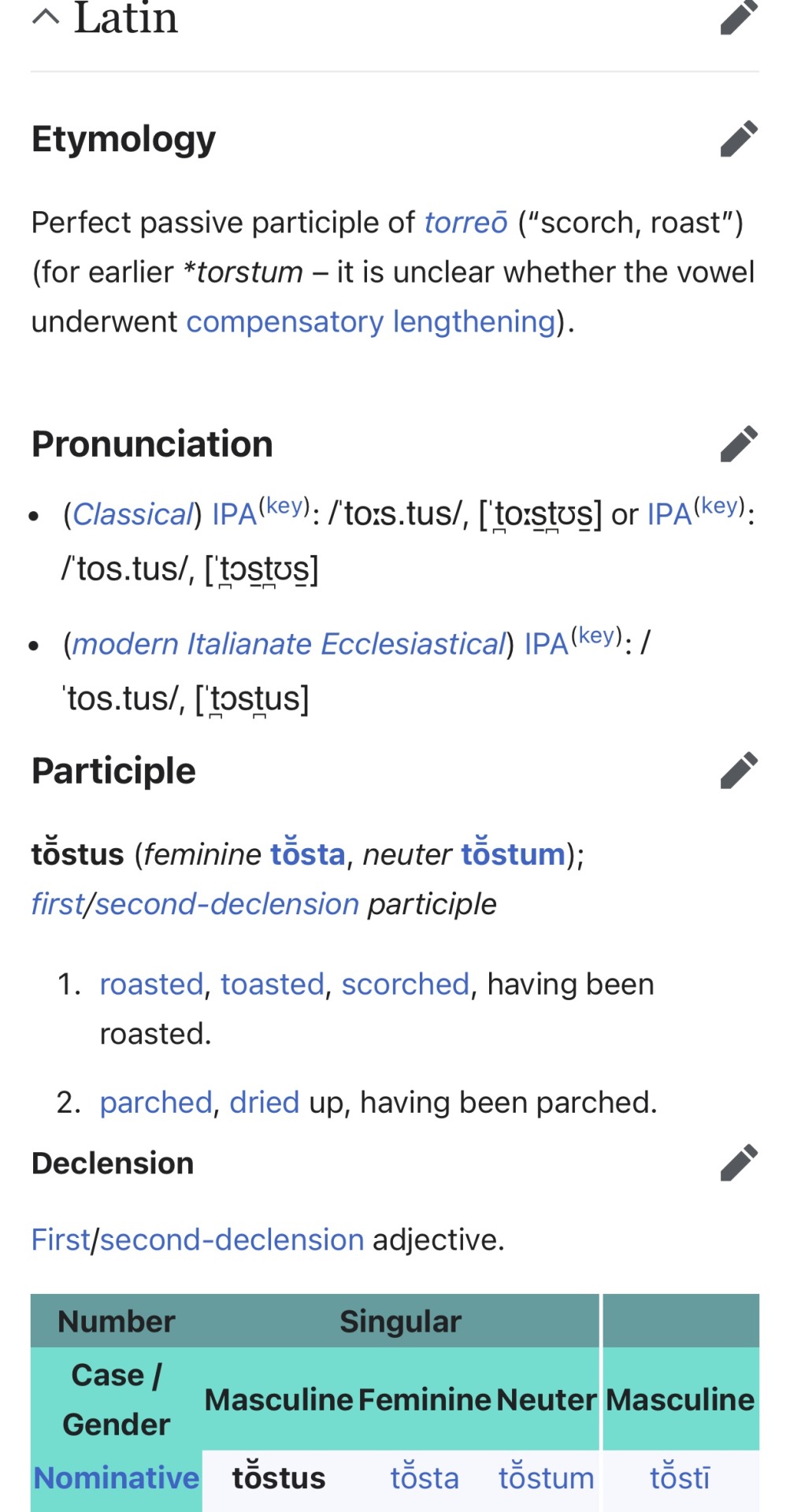
The original Latin tostus, from which our Shax insult derives, actually means “roast” along with its other meaning “toast”. (There’s a masculine verb form of the Latin tostus that is literally “toste”)
Which should really have you cackling because in episode 6, she ABSOLUTELY makes good on her threat. To do what again… Steal the books? Hurt the angels and humans? Crush the embassy? Nope.
She’s here to ROAST Crowley and Aziraphale.
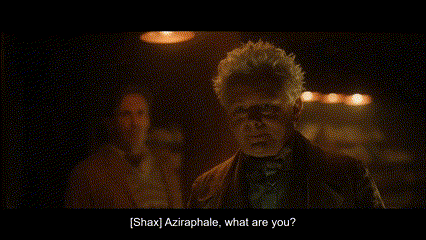

I guess we have no choice but to stan a petty, historical queen.
______________________________________________
thanks to @kimberleyjean for the inspiration. That was really fun!
#good omens meta#good omens 2#art director talks good omens#go season 2#go meta#good omens season two#good omens season 2#crowley x aziraphale#shax#Good omens
570 notes
·
View notes
Note
I don't really know but I think you probably got this question at some point in the recent years, but I cannot help but be curious about Palestinian Jews- the ones who lived in Palestine before the Jewish immigration from Europe even started. Are there still traces of that identity or are they indistinguishable from Israelis at this point now?
I have actually answered a question similar to this years ago so I will copy my answer over here:
i do not know a whole lot about this, partially because since Israel sought to lump all of the diaspora jews into a unified indigenous population, the term “jewish palestinian” is almost never used.
i remember asking this to someone who had gone through the nakba and saw the change take place as he lived in a neighbourhood with jewish families and basically, according to him, it started by the israeli state including palestinian jews in the police force since they understood the language of the locals and therefore would help make it easier to impose control.
there was both the sense of coercion into assimilation and the promise of safety and prosperity in a society where they’re not the minority:
"As the position of European Zionist immigrants became privileged under the terms of the Balfour Declaration during the Mandate, many native and Sephardic Jews (in Palestine, as in neighbouring Arab countries) were placed in an untenable position. Their resistance to the imposition of Zionist identity was not primarily ideological, but cultural. The lure of Jewish nationalism was also the lure of modernity, of European liberalism, and of socialism. But these attractions also set them apart from their Arab and Levantine affinities, and pitted them against the independence movements in their own countries."
as said above, it was a matter of coercion more than anything (esp. considering their good relations with the muslim and christian Palestinians prior to that) that had lead many Palestinian jews to work with the Israeli government as they would be left with little choice in the matter; opposition could have meant exile along with other Palestinians in an environment where the Middle East was becoming increasingly hostile to Jewish people, in part because of rooted antisemitism, but also in response to the creation of Israel as a settler colonial state.
I highly recommend reading Arab Jew in Palestine by Menachem Klein and Ishaq al-Shami and the Predicament of the Arab Jew in Palestine by Salim Tamari where the quote above is from.
471 notes
·
View notes
Text
i have been trying to provide historical context for the ongoing genocide and ethnic cleansing of palestinians, but i want to make it clear that i do not and will never tolerate antisemitism, just as i do not and will never tolerate islamophobia.
it is never acceptable to conflate zionism with judaism, nor the state of israel and its oppressive policies with its people or with jewish religious or ethnic identity. anyone of any religion or ethnicity can embrace zionism because zionism is a political ideology. there are, and have been from its conception, many christian zionists. just as there are, and have been from its conception, many jewish anti-zionists. the zionist movement as it came into being in the late 1800s is deeply rooted in western and european imperialism.
of course palestinians and israelis both have the human right to live in peace and safety, and that is why i call for an end to this occupation and for the liberation of palestinians. palestinians must be given the right of return to their homes, they must be allowed to have access to their own lands and resources, to not be harassed violently, fatally, and daily by the israeli occupying forces and settlers in their homes and during commutes and at checkpoints. palestinians must be given equal rights and the right to return, and to live in safety.
indiscriminately surveilling, detaining, torturing, abusing, killing, bombing palestinians will never provide "security" to the state of israel. enforcing a brutal and endless apartheid regime will never provide security. erecting barriers that cruelly separate palestinians from their families will never provide security. no amount of oppression will provide security because that's not how it works. oppression creates resistance. violent oppression creates violent resistance. only liberation and equality can begin to provide safety and the opportunity to move forward. free palestine.
443 notes
·
View notes